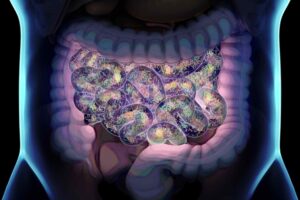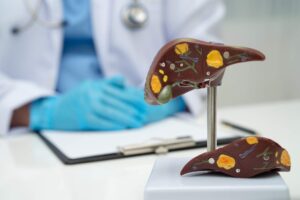Gastroenterology
Video, Gastroenterology
Francesco Franceschi from Policlinico Universitario A. Gemelli IRCCS (Roma) focuses on bacterial translocation across a compromised intestinal barrier as a plausible pathway contributing to sepsis.
Gastroenterology
Lantibiotic-producing gut bacteria can prolong gut imbalance and increase susceptibility to dangerous infections after antibiotics.
Gastroenterology
MTB and aerolysin drive gut inflammation in ulcerative colitis.
Video, Gastroenterology
William Fusco, gastroenterologist at Policlinico Universitario Agostino Gemelli, highlighted a recently published pilot study on post-infectious irritable bowel syndrome (IBS) framed within microbial precision medicine and biomarker-driven care.
Gastroenterology
Changes in gut bacteria raise a child’s chances of developing IBD later in life, offering clues to why the conditions sometimes runs in families.
Gastroenterology
Francesca Ponziani from Gemelli University Hospital (Italy) highlights how the gut microbiota can become a clinical tool for identifying and stratifying patients, clarifying pathogenic mechanisms, and opening up new therapeutic…
Video, Gastroenterology
Federica Facciotti, from University of Milano Bicocca, focuses on how the gut microbiota interacts with immune activation, shaping both chronic inflammatory intestinal disorders and oncology, particularly colorectal cancer.
Gastroenterology
Gut bacteria help protect the liver by breaking down sorbitol, a sugar made from glucose in the gut.
Gastroenterology
A gut bacterium, Clostridium steroidoreducens, can chemically modify steroid hormones, including those used to treat IBD.
Gastroenterology
L. mucosae and L. ruminis can produce serotonin in the gut, where it promotes nerve growth and regulates intestinal motility.











